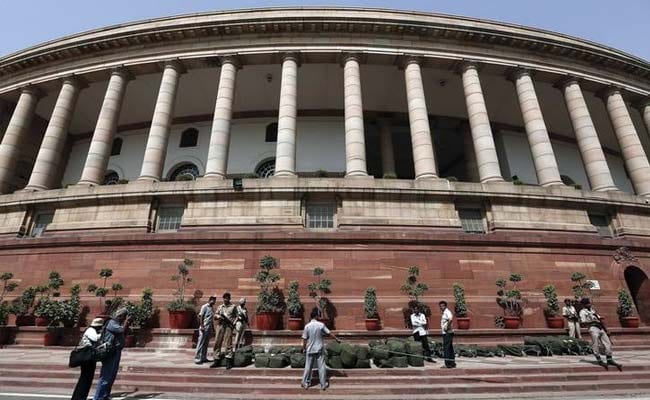
The government introduced the proposal this morning in the Lok Sabha
New Delhi:
The government's plans for land reforms, which have pitched it in a major confrontation with the Opposition, are likely to be assigned for review to a parliamentary committee with representatives of both Houses. The panel will be headed by a BJP parliamentarian and will be assigned a deadline to submit its report, said sources to NDTV.
The new rules for how farmland can be acquired by industry and for key infrastructure projects is the centerpiece of Prime Minister Narendra Modi's slew of economic reforms, but has galvanised a sharp attack from the Opposition, led by the Congress, which has declared the Land Acquisition Bill as "anti-farmer".
The government introduced the proposal this morning in the Lok Sabha, where it has a strong majority. But in the Rajya Sabha or Upper House, it is in a minority and has reportedly calculated that it may not be able to counter the Opposition's pressure to have the proposal sent to a committee of Rajya Sabha members, which would effectively mean that it would languish in review for months.
The joint parliamentary committee could allow the government to side-step that prospect.
The government's push for land reforms reflects the PM's determination to drive changes seen as key for economic development despite significant political risks.
In December and then again in March, the government used an ordinance or executive order to introduce new land acquisition rules, a temporary workaround. Billions of dollars of investment in industrial projects are tied up due to conflicts between farmers and companies trying to buy land, government backers say, hampering economic growth that could lift millions out of poverty and blocking the need for new mines, ports, and networks of highways.
But Opposition parties led by the Congress say the reforms are designed to favour corporates because they include exemption from getting consent of 80 percent of landowners for some projects.
The new rules for how farmland can be acquired by industry and for key infrastructure projects is the centerpiece of Prime Minister Narendra Modi's slew of economic reforms, but has galvanised a sharp attack from the Opposition, led by the Congress, which has declared the Land Acquisition Bill as "anti-farmer".
The government introduced the proposal this morning in the Lok Sabha, where it has a strong majority. But in the Rajya Sabha or Upper House, it is in a minority and has reportedly calculated that it may not be able to counter the Opposition's pressure to have the proposal sent to a committee of Rajya Sabha members, which would effectively mean that it would languish in review for months.
The joint parliamentary committee could allow the government to side-step that prospect.
The government's push for land reforms reflects the PM's determination to drive changes seen as key for economic development despite significant political risks.
In December and then again in March, the government used an ordinance or executive order to introduce new land acquisition rules, a temporary workaround. Billions of dollars of investment in industrial projects are tied up due to conflicts between farmers and companies trying to buy land, government backers say, hampering economic growth that could lift millions out of poverty and blocking the need for new mines, ports, and networks of highways.
But Opposition parties led by the Congress say the reforms are designed to favour corporates because they include exemption from getting consent of 80 percent of landowners for some projects.
Track Latest News Live on NDTV.com and get news updates from India and around the world

